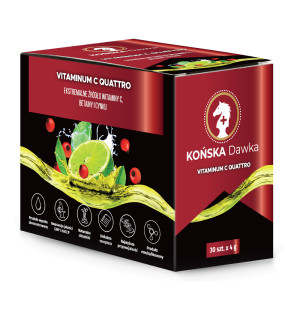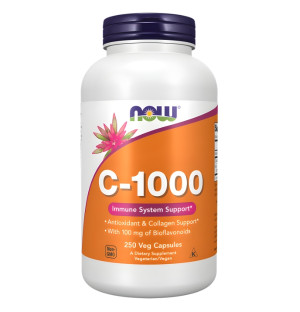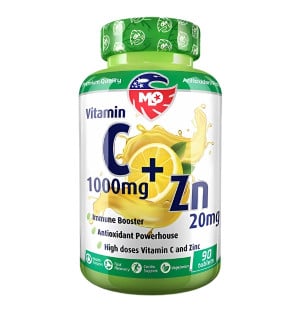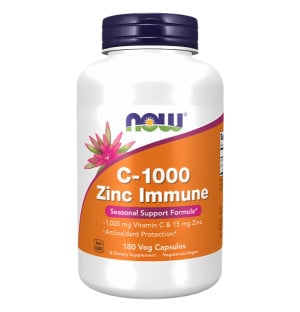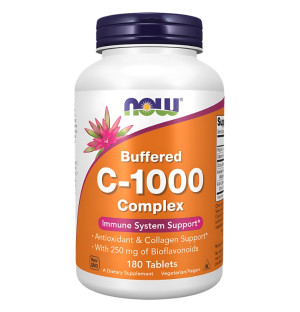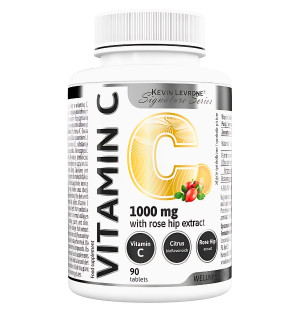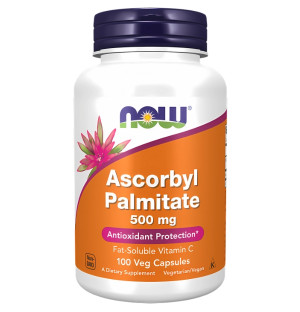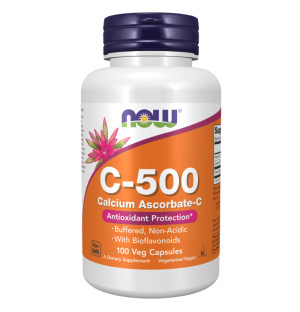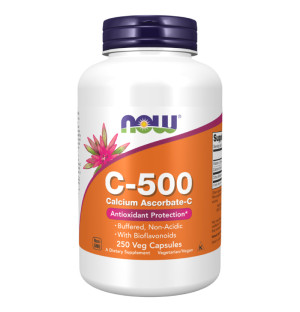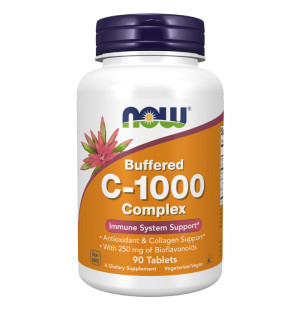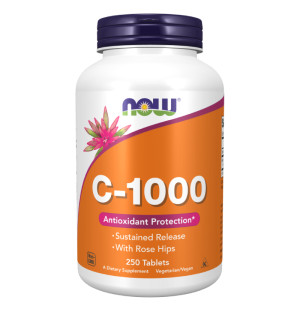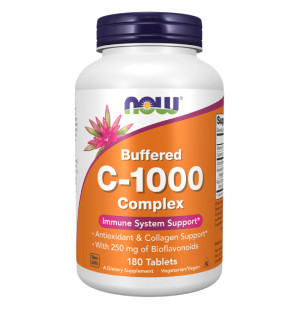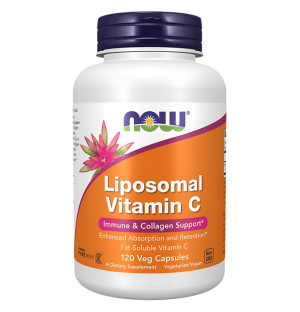Vitamin C
Vitamin C - support for immunity, skin and cell health
Vitamin C, also known as ascorbic acid, is one of the most important vitamins for human health. As a powerful antioxidant, vitamin C plays a key role in protecting cells from oxidative stress, supports the immune system and is also involved in the synthesis of collagen, which is essential for the health of the skin, joints, bones and blood vessels. As vitamin C is water-soluble and cannot be stored by the body, it must be supplied regularly with diet or supplements.
Vitamin C supplements are some of the most popular products on the market due to their versatility and wide range of health benefits. Vitamin C is particularly valued for supporting the immune system, protecting against infection and supporting the body's regeneration.
Role and health benefits of vitamin C
✅ Immune system support: Vitamin C plays a key role in the functioning of the immune system. It supports the production of white blood cells (leukocytes), which are responsible for fighting infections. It also helps to increase antibody levels and strengthen the function of the body's protective barriers, such as the mucous membranes. Regular supplementation with vitamin C can reduce the risk of infections, such as colds and flu, and shorten the duration of illness.
✅ Strong antioxidant protection: Vitamin C is one of the most important antioxidants in the body. It neutralises free radicals, which can damage cells and accelerate the ageing process. Protection against oxidative stress is key to preventing chronic diseases such as heart disease, diabetes and cancer. In addition, vitamin C helps to regenerate other antioxidants such as vitamin E.
✅ Collagen synthesis: Vitamin C is essential for the production of collagen - a protein that is a major component of skin, bones, joints, tendons and blood vessels. Collagen provides elasticity to the skin, promotes wound healing and helps maintain healthy joints and bones. Regular supplementation with vitamin C can support healthy skin, improve elasticity, reduce wrinkles and promote healing.
✅ Support cardiovascular health: Vitamin C supports cardiovascular health by helping to reduce inflammation, lower LDL cholesterol (the so-called 'bad' cholesterol) and improve the elasticity of blood vessels. Thanks to its antioxidant properties, vitamin C protects the heart from oxidative stress, which reduces the risk of heart disease and atherosclerosis.
✅ Supporting iron absorption: Vitamin C increases the absorption of plant-derived (non-haem iron), which is more difficult for the body to absorb than animal-derived iron. Vitamin C supplementation may be particularly beneficial for people with anaemia or iron deficiency, such as vegetarians, vegans and pregnant women.
✅ Support for body regeneration: Vitamin C supports the body's regeneration after intense exercise, promotes wound healing and reduces inflammation in muscles and joints. It also acts as an enzyme cofactor in metabolic processes, which accelerates tissue regeneration.
✅ Mental health support: Vitamin C can support mental health and improve mood. Research suggests that vitamin C deficiencies may be associated with lowered mood, mental fatigue and anxiety and depression.
Forms of vitamin C
-
Ascorbic acid: This is the most common form of vitamin C used in dietary supplements. Ascorbic acid has strong antioxidant properties and is well absorbed by the body, but in high doses it can sometimes cause gastric irritation.
-
Esterified vitamin C: This is a buffered form of vitamin C that is gentler on the digestive system as it has a higher pH. It is ideal for those with sensitive stomachs or prone to irritation with standard vitamin C.
-
Liposomal vitamin C: In this form, vitamin C is encapsulated in liposomes (small lipid beads), which increase its bioavailability and improve its absorption by cells. Liposomal vitamin C is often chosen by people who need a stronger antioxidant effect and better absorption.
-
Sodium or calcium ascorbate: Buffered forms of vitamin C that are less acidic and gentler on the stomach. Calcium ascorbate additionally provides calcium, which supports bone health.
-
Natural vitamin C: Extracted from natural sources such as acerola, rosehip or camu camu. Natural vitamin C extracts often also contain bioflavonoids, which support the absorption of the vitamin and enhance its effects.
Symptoms of vitamin C deficiency
- Weakening of the immune system: People with vitamin C deficiency may be more susceptible to infections such as colds and flu.
- Fatigue and weakness: Vitamin C deficiency can lead to chronic fatigue, muscle weakness and difficulty in recovery.
- Skin problems: Vitamin C is essential for the production of collagen and a deficiency can lead to dry skin, reduced elasticity, wrinkle formation and difficulty healing wounds.
- Bleeding gums and dental problems: Vitamin C deficiency can lead to bleeding gums, weakened gum tissue and dental problems.
- Scurvy: Severe and prolonged vitamin C deficiency leads to scurvy, a serious disease that manifests as bleeding gums, loss of teeth, weakness, anaemia and joint pain.
Who should consider vitamin C supplementation?
❎ People with a weakened immune system: Vitamin C supports the production of white blood cells and antibodies that help the body fight infection.
❎ People with busy lifestyles: Vitamin C supplementation can support the body against stress, fatigue and improve recovery after intense exercise.
❎ People concerned about skin health: Vitamin C supports collagen production, which improves skin elasticity, reduces wrinkles and accelerates wound healing.
❎ Vegetarians and vegans: Vitamin C increases the absorption of plant-derived iron, which is particularly important for those on plant-based diets.
❎ Older people: As we age, the body can absorb vitamins and minerals less well, and vitamin C helps maintain a healthy cardiovascular system and supports immunity.
❎ Smokers: Smoking reduces vitamin C levels in the body, so smokers may have an increased need for this vitamin.
Summary
Vitamin C is one of the most important vitamins for supporting human health, from immunity to skin and cardiovascular health. As a powerful antioxidant, it protects cells from oxidative stress, supports collagen production and improves iron absorption. Regular supplementation with vitamin C is beneficial for those exposed to stress, fatigue and infections, as well as for those who want to support skin health and body regeneration. Vitamin C supplements are available in a variety of forms, allowing the product to be tailored to individual health needs.

